In his final State of the State speech, Sununu touts New Hampshire success
| Published: 02-15-2024 5:26 PM |
Governor Chris Sununu is not shy when it comes to presenting New Hampshire as the “envy of the nation.” He’s said it in speeches in Concord, on national television and once again in his final State of the State address.
“Our economy was ranked as the fastest growing in the country at 8.1%, the envy of the nation,” Sununu said, “and the best place in America to live, work, and raise a family.”
In years past, his annual accolades have set the stage for policy priorities. Last year, he called for an overhaul of the state’s licensing system. In 2021, he pushed for tax reforms – lowering the meals and rooms and business enterprise taxes.
But in his final address, the governor recounted the state’s accomplishments during his last eight years in office and touted New Hampshire as a national leader.
“New Hampshire leads from the front, we never follow. Every policy victory, economic win, and record-breaking statistic has been the direct result of hard work, fiscal discipline, and sound government stewardship,” he said. “This is the New Hampshire success story.”
He offered statistics to back up his point.
Last year, the Granite State was ranked by one group or another as the number one state for overall freedom, economic freedom and child well-being. The state’s corrections system also received accolades. And for the eighth year in a row, no new taxes were introduced in the state.
“Being the best is earned, not given,” he said. “That is what has guided us these last seven years, and that is what will take us into the future.”
Article continues after...
Yesterday's Most Read Articles
 New Hampshire legalizes public alcohol consumption in designated ‘social districts’
New Hampshire legalizes public alcohol consumption in designated ‘social districts’
 New Hampshire providers brace for Medicaid changes that reach beyond healthcare
New Hampshire providers brace for Medicaid changes that reach beyond healthcare
 Warner town administrator granted restraining order against selectman
Warner town administrator granted restraining order against selectman
 Hotel makeover underway in downtown Concord
Hotel makeover underway in downtown Concord
 Opinion: Dear Gov. Ayotte, let’s talk about the books
Opinion: Dear Gov. Ayotte, let’s talk about the books
 State rules Epsom must pay open-enrollment tuition to other school districts, despite its refraining from the program
State rules Epsom must pay open-enrollment tuition to other school districts, despite its refraining from the program
That’s not to say all New Hampshire communities are singing Sununu’s praises.
In budget hearings and deliberative sessions across the state ahead of town meetings, scant assistance for public education and increases in employee benefits are driving up budgets and stressing the burden on local taxpayers.
Today, for every $100 in compensation, towns and cities pay about $30 to the state’s retirement fund for police and firefighters, a figure that’s tripled in the last 20 years.
Last year, lawmakers passed a one-time 7.5 percent contribution, but could not reach an agreement to return to regular state contributions.
House Bill 50, dubbed the “Property Tax Relief Act of 2023,” which would have instated an annual 7.5 percent contribution, was killed when the session ended. The idea of a recurring contribution is to reduce the financial burden on town budgets, which in turn would lower local taxes in the state with the highest tax burden in the country.
A statewide housing shortage also continues to strain communities. To meet demand today, 23,500 units are needed. In 2022 Sununu’s $100 million InvestNH fund utilized federal American Rescue Plan Act dollars to accelerate development across the state.
And while initial results are in – with the number of building permits issued doubling in the last year – housing insecurity continues to challenge the state’s workforce.
Last year, New Hampshire saw the largest increase in homelessness nationwide. Rental vacancy rates in the state remain below 1 percent, while median rent has increased by 40 percent in the last five years.
“Businesses can’t be successful without the workforce, and there won’t be a workforce unless we have the housing,” Sununu said. “Families and workers are the backbone of a strong, thriving state, and without housing our economic opportunity suffers.”
When Sununu first ran for the corner office in 2016, he campaigned on the need to improve the state’s mental health system.
Throughout his tenure, the state issued a new ten-year mental health plan, purchased Hampstead Hospital and launched “mission zero” – an effort to eliminate emergency department boarding for people with mental illness.
When families or individuals are in crisis today, they can dial 2-1-1 for access to resources. Last year, over 5,000 children were served through the state’s rapid response crisis services, he said.
“There’s a lot of work ahead of us but these transformational changes have opened doors like never before and given families choices when their kids need it most,” he said.
Oftentimes, mental health and substance abuse can go hand in hand.
In one of a few policy pleas, Sununu called for $850,000 in funding to deploy more members of the New Hampshire National Guard to the Southern border in Eagle Pass, Texas.
Earlier this month, Sununu visited the border alongside several Republican governors, calling for increased border security to prevent drug smuggling and illegal immigration.
“This is not a Texas problem,” he said. “It is a national crisis and New Hampshire has the chance to provide specialized support, follow the laws of the land, and keep our citizens safe.”
He also called on the legislature to pass House Bill 1665, which made it out of the House by one vote. The bill would expand eligibility for Education Freedom Accounts from 350 percent of the federal poverty level to 500 percent, which is an income of $150,000 a year for a family of four. The recommendation was met with a standing ovation from Republican members of the House.
The program, which allows families to use state funding to pay tuition at the school of their choice or for other educational expenses, was ranked as the most effective school choice program in the country, Sununu said.
New Hampshire also introduced full-day kindergarten, a career academy program for students to earn an associate’s degree while in high school and expanded robotics offerings in schools over Sununu’s four terms.
A highlight of his tenure in office came at the hands of the legislature last year, he said, when the narrowly divided House passed his final biennial budget on a voice vote – after a last-minute compromise between party leaders.
“You all did an incredible job with that one and showed Washington that regardless of political divide, a fiscally conservative budget, without gimmicks or empty promises can always be achieved with hard work,” he said.
While he joked that the filing period for governor remained open, he urged legislators to continue to find that common ground when new leadership is at the helm.
“Next year, there will be a new governor, a new legislature, and new challenges to address,” he said. “But we are so much better off when we all work together, and it is up to each of you that returns next year to bring the same level of energy, cooperativeness, and bipartisanship that has helped us achieve so much together.”

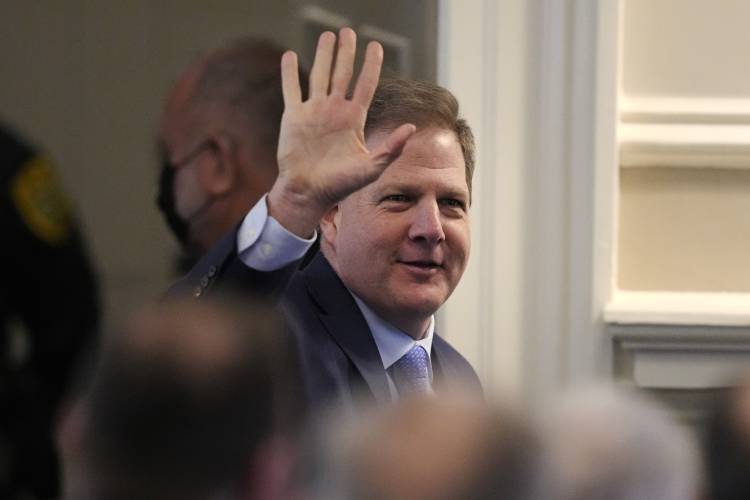
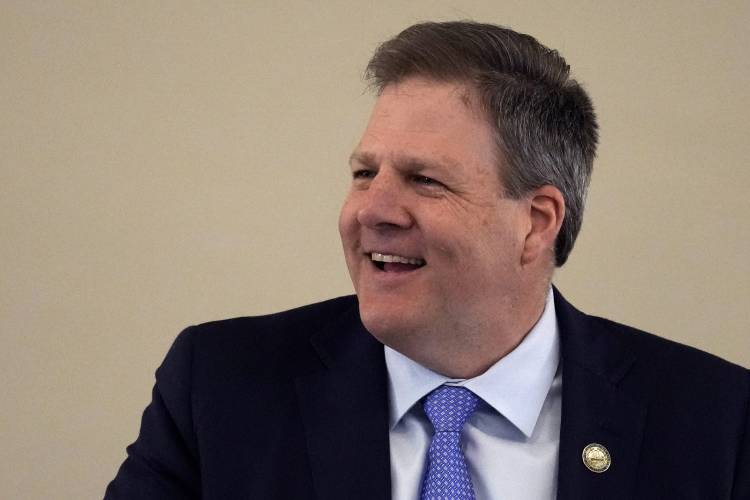
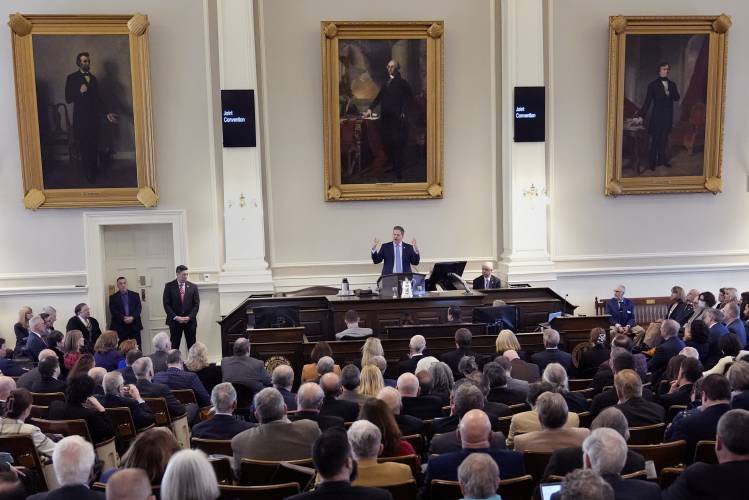
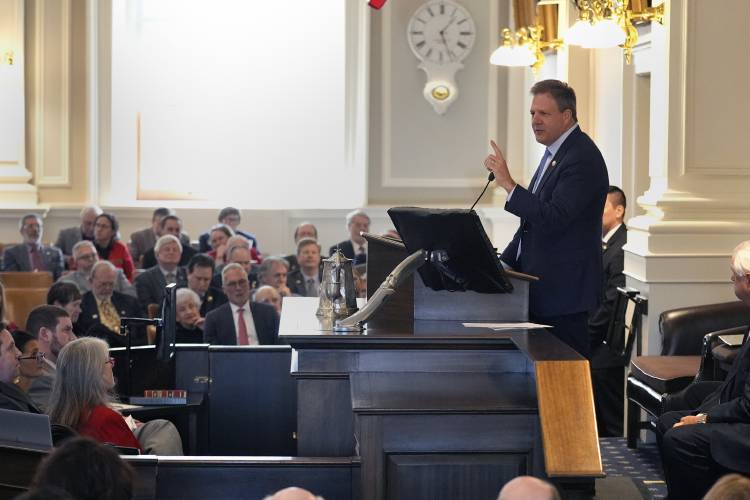
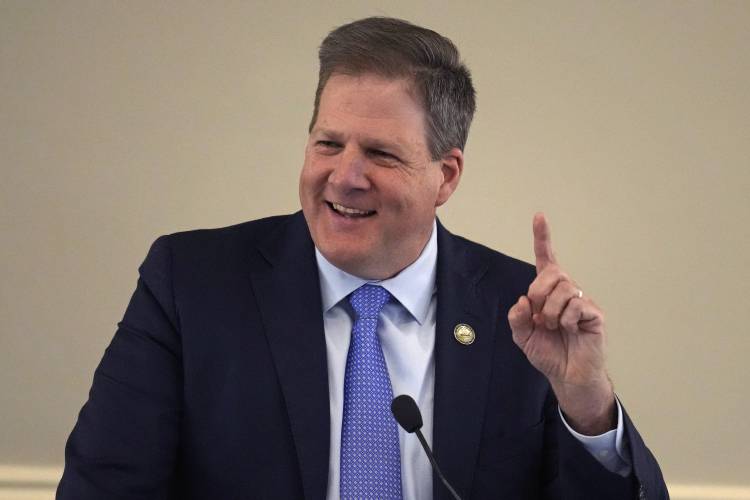
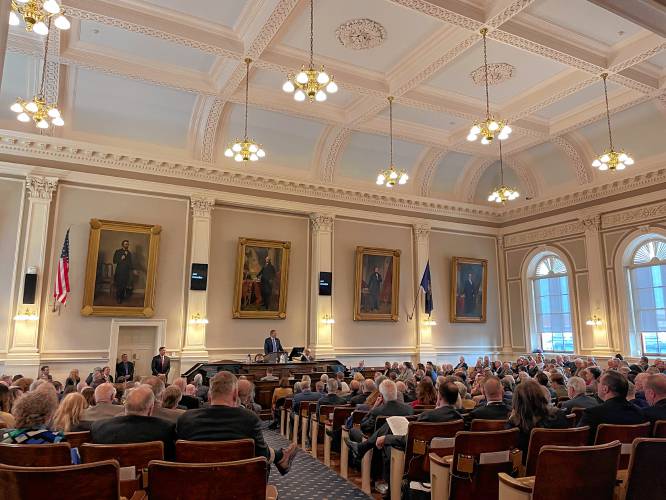






 ‘A little piece of everything I like’: New Pittsfield barbershop brings more than a haircut to downtown
‘A little piece of everything I like’: New Pittsfield barbershop brings more than a haircut to downtown NH judge decides to pause Trump’s birthright citizenship order
NH judge decides to pause Trump’s birthright citizenship order Canterbury honors ‘real heroes’ with updated Military Veterans’ Project
Canterbury honors ‘real heroes’ with updated Military Veterans’ Project Look, up in the sky! It’s… an Airstream trailer?
Look, up in the sky! It’s… an Airstream trailer?
